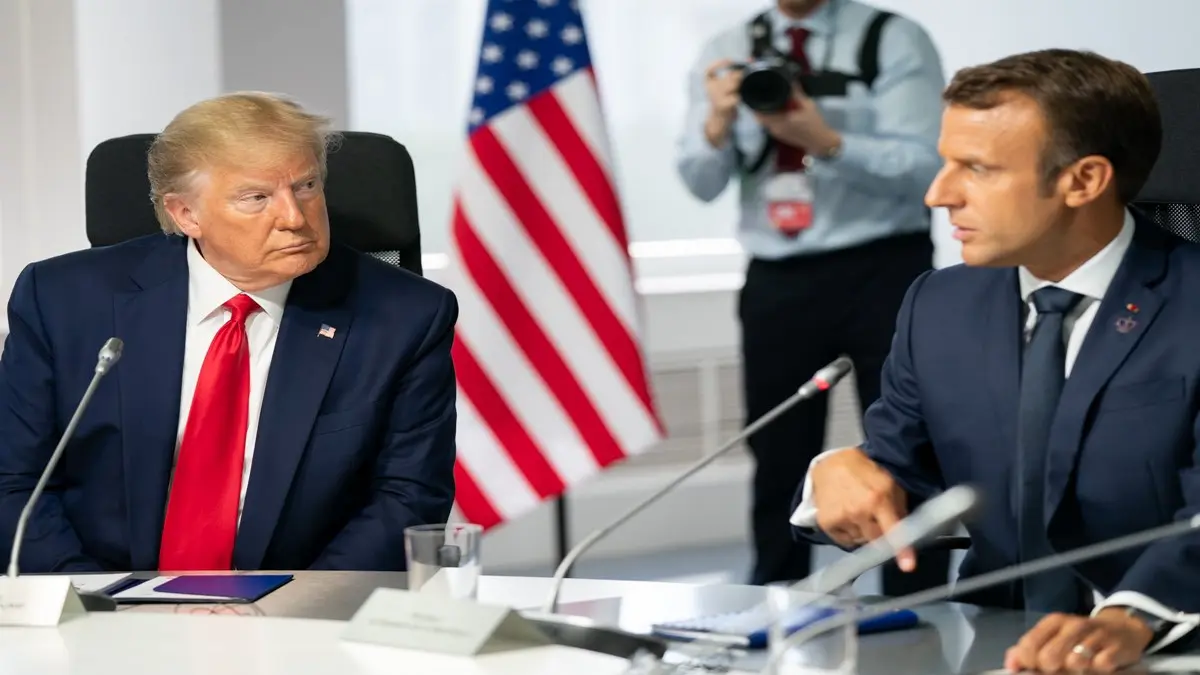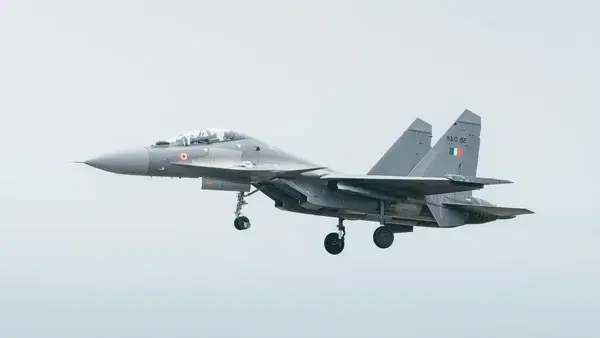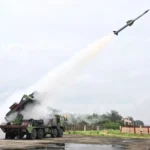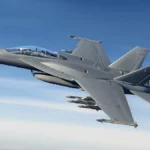“Due to the escalating conflict between Israel and Iran, US President Donald Trump left the G7 summit in Kananaskis, Canada, a day early. The White House confirmed the departure after the conclusion of a working dinner on Monday evening, as Trump returned to Washington to “focus on what’s going on in the Middle East.”
Meetings canceled and abrupt exit
Trump’s abrupt departure led to the cancellation of several scheduled bilateral meetings, including a meeting with Australian Prime Minister Anthony Albanese – which was planned to address AUKUS defense cooperation and trade issues – and a planned lunch with Ukrainian President Volodymyr Zelensky. Albanese’s office expressed understanding, with international security concerns taking precedence.
Reuters reported that President Emmanuel Macron expressed relief at Trump’s departure, suggesting he could help advance a ceasefire initiative between Israel and Iran, Trump The claim was later denied on Truth Social. Macron said the US president had made a “ceasefire proposal”, but Trump argued: “False!…It certainly has nothing to do with a ceasefire.” “Bigger than that.”
Middle East Focus and US Attitudes
Speaking to reporters before boarding Air Force One, Trump told reporters that Iran “must never get a nuclear weapon”, warning that further hostilities would continue. He said Israel would not slow down its campaign, and floated the idea of sending high-level envoys to Tehran to restart nuclear talks – while denying any involvement in a ceasefire. The president’s early exit was in line with the G7’s efforts to unify on a de-escalation plan and secure energy markets.
Implications for the US role in the conflict
Trump’s exit reflects that the Israeli-Iran war is a US foreign policy How policy priorities are being reshaped. His call for Tehran to evacuate and his stern warning against a nuclear attack signal a more active American role. Although U.S. forces remain on standby, Trump’s departure reflects the president’s growing involvement in the crisis.
Analysts note that returning to Washington at this time suggests that Trump is aiming to integrate strategies on both the diplomatic and military fronts. This could include coordinating intelligence assistance, overseeing missile defense efforts, or preparing contingency plans — even though the official public stance denies direct military involvement.
Analysis
President Trump’s early departure from the G7 highlights the growing seriousness of the Israeli-Iran conflict in the U.S. strategic calculus. The move comes at a critical juncture: Israel is intensifying its air campaign, Iran is threatening more missile strikes, and international leaders are calling for restraint. Trump’s actions signal a deep US commitment to Israel’s objectives, while moving cautiously to avoid formal American combat involvement.
His decision to leave at a critical moment, reschedule the summit, and return reflects not only the immediate global impact of the conflict – but also an evolving US posture that blends diplomatic pressure, military preparedness, and high-level oversight.
Also Read: MI6 Appoints First Female Chief: Blaise Metreweli to Lead Britain’s SIS
FAQs: People Also Ask
Trump left the G7 summit in Kananaskis, Canada, so he could return to Washington and focus on the escalating conflict between Israel and Iran. His early departure also canceled scheduled meetings with leaders such as Australian Prime Minister Anthony Albanese and Ukrainian President Volodymyr Zelensky.
Trump’s move suggests that America is putting the Middle East crisis at the top of its foreign policy agenda. While he has ruled out a role in a ceasefire, Trump has stressed that Iran must never acquire nuclear weapons. Analysts believe this could mean more US intelligence assistance, stronger defense ties with Israel and preparations for a possible military response.
The conflict between Israel and Iran is already fueling discussions about global oil prices and energy security – a top trending topic worldwide. Trump’s decision to leave the G7 reflects concerns about America’s energy supply chains, nuclear threats, and international security, making this crisis not just a Middle East issue but a global one.








Leave a Reply